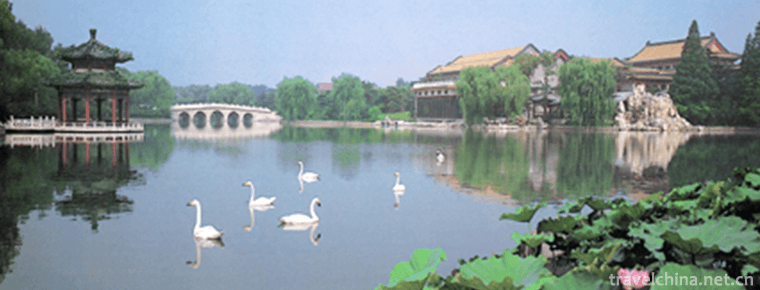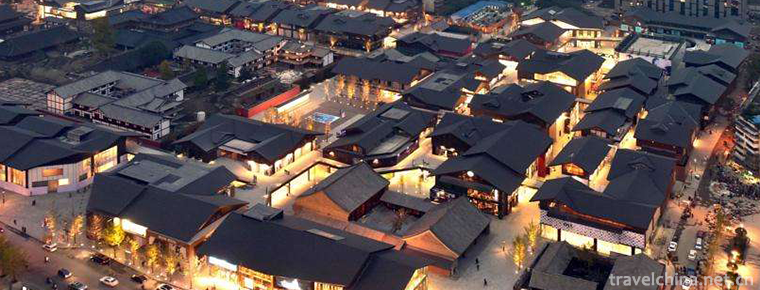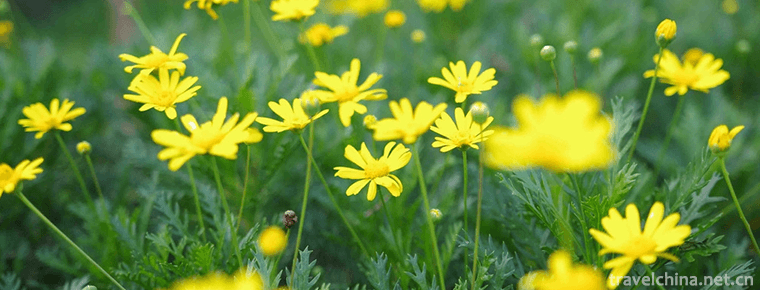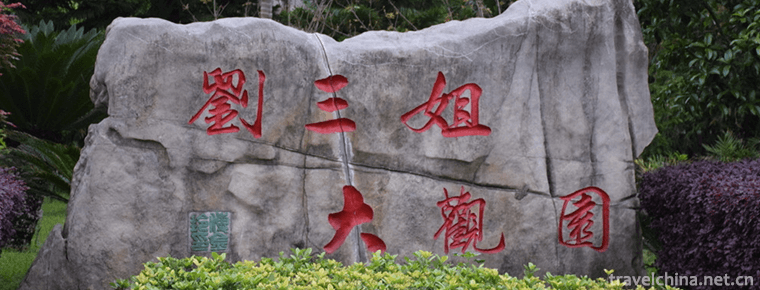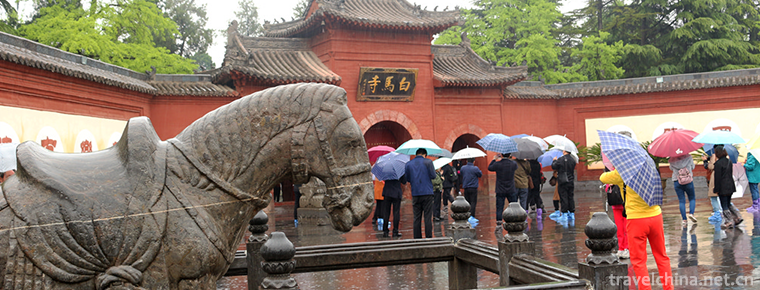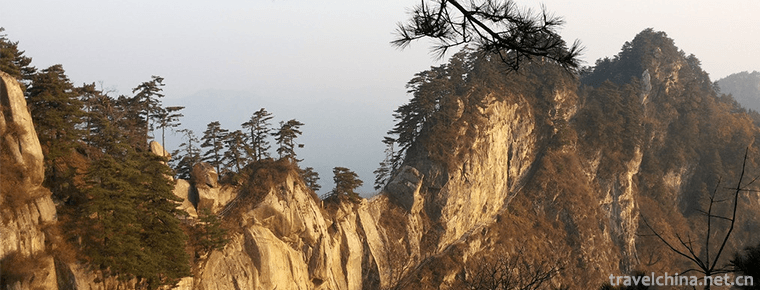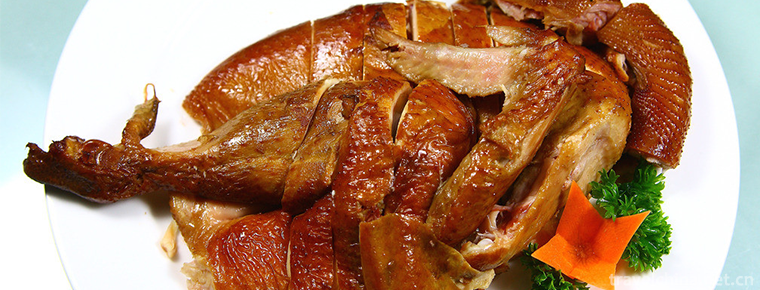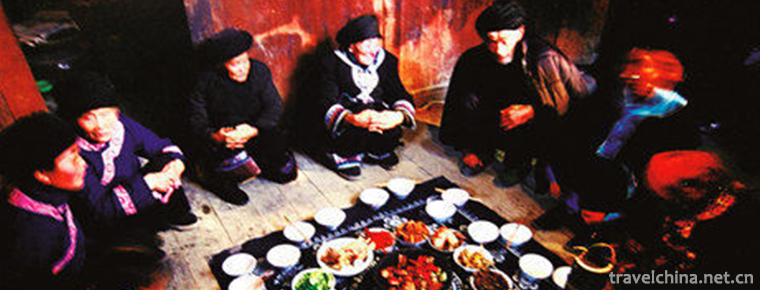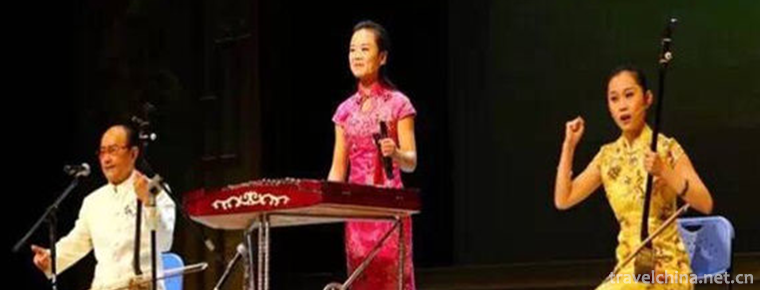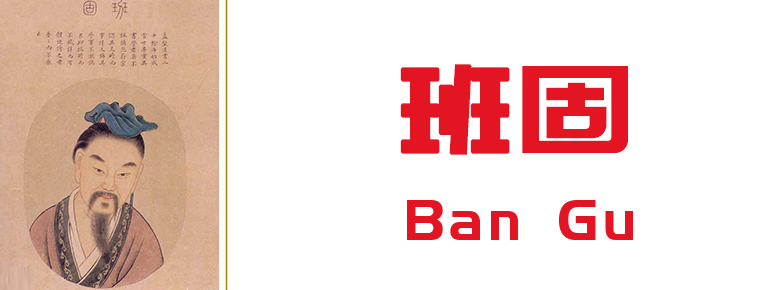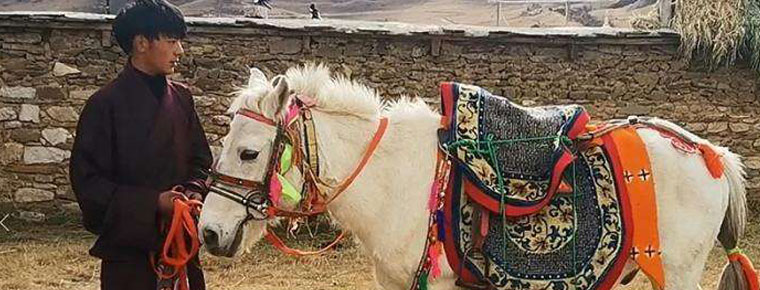Timago of Tujia Nationality
Timago of Tujia Nationality
The Tujia Tima song, also known as the "Tujia Tima Goddess Song", is an ancient song sung in Tujia language in the activities of Tujia Tima. It mainly distributes in Longshan, Yongshun, Baojing and Guzhang counties of Youshui watershed in Western Hunan. It has a long history, rich connotation and rich characteristics, and has a far-reaching impact on Tujia humanities and society. It is a long, singing epic with a vast structure and vast space. It gives a valuable account of Tujia history, ethnic migration, astronomy and geography, belief taboos, religious philosophy, production and labor, and living customs. It is a precious cultural heritage of Tujia folk literature in the Tujia and Miao Autonomous Prefecture of Western Hunan, and is known as an encyclopedia for studying all aspects of Tujia.
On June 7, 2008, the "Tujia Timago" declared by Longshan County of Hunan Province was listed in the second batch of national intangible cultural heritage list with the approval of the State Council. Number 567 I-80.
historical origin
Tima Ge is a precious cultural heritage of Tujia folk literature in Tujia and Miao Autonomous Prefecture of Western Hunan. It mainly distributes in Longshan, Yongshun, Baojing and Guzhang Tujia inhabited areas in Youshui watershed of Western Hunan. It has a long history, rich connotation and rich characteristics, and has far-reaching impact on Tujia humanities and society.
Tima Ge is an ancient song sung in Tujia language in Tima activities. "Tima" is a pronunciation translation of Tujia, and "Tima" refers not only to a primitive religious ceremony of Tujia, but also to the Tujia language address of wizards, that is, "people who worship God".
Timago is a long, singing epic with a large structure and a vast space. It describes the history of Tujia people, the migration of ethnic groups, astronomy and geography, taboos of belief, religious philosophy, production and labor, and customs of life. It takes the Tujia folk sacrificial rites as the carrier and is handed down from generation to generation. It integrates poems, songs, music and dances, showing the extensive historical content and social life content of Tujia people.
Longshan, Yongshun, Baojing and Guzhang are located in the northwest border of Hunan Province. The geographical reasons for the long-term preservation of Tujia primitive culture lie in the overlapping mountains and gullies in the region and the lack of large-scale cultural exchanges with the outside world in history.
Among the total population of Longshan, Yongshun, Baojing and Guzhang counties, ethnic minorities such as Tujia account for 64.8%, which is the most densely populated area in the whole country. Longshan County Indigo House, Tasha, car wash river, Miaoertan, farm cars, Longtou, Jiashi, Liye, Changtan, Yanchong, Neixi and other townships still have Tujia language, which is the best preserved area of the national family language. Tujia folk culture with language as its carrier is handed down from generation to generation.
Four counties, Longshan, Yongshun, Baojing and Guzhang, belonged to the central part of Guizhou in the Pre-Qin Dynasty, Qianzhong County in the Qin Dynasty and Wuling County in the Han Dynasty.
Liangzhi Daxiang County, Chenzhou in Sui Dynasty, Daxiang in Tangzhixi Prefecture and Santing County. After Liang Kaiping established the Chieftain Regime in Xizhou, the people of the four counties experienced a history of chieftain rule for 877 years. The people of the four counties share the same vein, water, people and ancestors, and folklore. In the long process of historical development, they have jointly created the Tujia folk culture which is full of stars. Timago is one of the wonderful flowers.
In the eyes of Tujia people, "Tima" is a mysterious messenger to communicate between human beings and gods. He can not only express people's prayers to God, but also convey God's will to people. He is not only the spokesman of God, but also the spokesman of man. However, because Tujia people have language and no words, whether they pray for God or propaganda for God, they can only express themselves in language rather than in words. Therefore, Timago has been handed down orally in the center of Tujia people for generations through the medium of Tujia language. In this way, Tima, who has mastered this knowledge and skill, occupies a prominent social position in the Tujia family. In ancient times, Tima was able to participate in the decision-making of important issues of the tribe, predict good or bad fortune for the tribe with their well-known divination skills, and use their unique witchcraft to pray for the tribe people and to ward off disease and evil, thus being respected by the people. Tima has the right to mediate civil disputes and intervene in civil weddings and funerals. Marriages between men and women must be permitted by Tima. In Yongzheng period of Qing Dynasty, the power of Tima was weakening day by day, but it still had a significant and profound impact on Tujia people's daily life.
Timarge of Tujia nationality exists in Longshan's indigo house (foot of slope), Tasha, farm car, car wash River (Ganxi), Miaoertan (Fengxi), Longtou, Jiashi, Neixi, Liye (Yanchong, Changtan), Baojing's Wanmipo town, Tucha, Bil, Chaoyang, Mercury, Yezhuping, Qingshui, Maogou, Dato, Purong, Renaissance, Qianling, Yongshun county's Songbai, Wangping, Fuzhi, Fuzhi. Yongmao, Lingxi, Granular Sand, Shidi, Shouche, Daoha, Qingping, Hongshilin Town of Guzhang County (eggplant, broken dragon) and more than 20 townships.
Inheritance value
Timargo is praised by experts as an encyclopedia for studying all aspects of Tujia nationality. Its main value lies in its literary and artistic value, folklore research value and linguistic value.
Tima Ge is a national ancient song sung in the activity of "Sheba Day" of Tujia nationality. It is a combination of rhyme and prose in form. It adopts a combination of Romanticism and realism. It has a strong literariness in rhetoric, rich vocabulary, peculiar imagination and vivid image. In contrast with Quyuan's Nine Songs, Tujia scholars once thought that the value of Timague was "enlightening and historical witnessing to the study of Qufu" (Peng Rongde and Wang Chengyao collated and interpreted the Preface of Timague). At the same time, the dance vocabulary of Tima Ge is very rich. The main movements are cross-stepping, step-stepping, gossip-stepping, horse-riding, horse-running, spinning and dancing knife, and copper bell dancing. The copper bell is not only a dance instrument, but also a musical instrument. It is in harmony with bullhorn and knife, forming a unique dance melody. Tima sings as she dances. Her movements are elegant and vigorous. She integrates singing and dancing, forming a long dance poem that expresses both narrative and singing and dancing.
Tima Ge covers almost everything from Tujia ethnic origin, ethnic migration, ethnic sacrifice to child-bearing, production and life. Some "Divine Songs" also convey the knowledge of celestial phenomena, phenology, agricultural time, farming, cooking and reproduction, which has played a very good role in guiding people's production and life.
Local dialects are important materials for the study of local history and culture. Tujia language is a local independent language that still exists today. In Timago, Tujia vocabulary is very rich, and it is a precious material of Tujia history and Hunan cultural history.
A Tima Ge, with hundreds of thousands of foreign words, covers almost everything from Tujia's national origin, ethnic migration, ethnic sacrifices to the birth of children, production and life. It deserves to be called "the living fossil of studying all aspects of Tujia" by experts and scholars.
In 2006, the Tujia Timag was identified as the first list of intangible cultural heritage projects in Hunan Province. In 2008, it was designated as the second batch of national intangible cultural heritage list projects. The intangible cultural heritage protection center of Longshan County is the main body of the project.
Current situation of inheritance
Inheritor
Peng Jilong, the inheritor of Tujia Timago, is a native of Shuangping Village, Neixi Township, Longshan County, Hunan Province. Tujia was born on November 23, 1949. His father, Peng Wugeng, is an old Tima of more than 20 generations.
Peng Jilong grew up in the Tujia area, deeply influenced by Tujia culture. He followed his father Peng Wugeng at the age of 10 and became an artist at the age of 15. In November 1993, he first participated in the Tujia Waving Hand Festival in Longshan, Hunan Province, China, and performed Timago. He signed up in 1998 and formally became a teacher in charge of Tima.
For a long time, Peng Jilong has never forgotten to learn from folk artists, collect and excavate folk cultural materials, especially in the study of Timago. Peng Jilong inherited the Tima song rich in content, the performance form is clumsy, primitive, with its unique image won the unanimous praise of experts, scholars and audiences.
Peng Jilong will be invited to participate in major festivals and inheritance activities of intangible cultural heritage in the Hunan-Hubei-Chongqing border area. People admire this disseminator of Tujia culture.
With the state attaching great importance to the protection of intangible cultural heritage, Peng Jilong and his Tima performance team have been continuously developed and gradually improved. They are well-known in the Hunan-Hubei-Chongqing border area and are deeply welcomed and loved by the masses. Every year, they receive many visiting experts and scholars from home and abroad, and provide them with a lot of valuable information. At the same time, he often participates in various cultural activities, especially in recent years to cooperate with the protection and inheritance of cultural heritage, performing more complex, perennial activities in Hubei, Xiangxi, Zhangjiajie and other places. On December 26, 2005, the Longshan County Party Committee and County Government awarded Peng Jilong the Longshan County Literature and Art Outstanding Contribution Award, which was awarded the "County Excellent Folk Artists". On June 9, 2006, it was awarded the title of "Excellent Inheritor of intangible cultural heritage" by Longshan County People's Government. On March 14, 2007, Peng Jilong was awarded the title of "inheritor of ethnic and folk cultural heritage of Tujia and Miao Autonomous Prefecture in Western Hunan" by the people's government of Xiangxi Prefecture. In April 2007, Peng Jilong was awarded the title of "inheritor of national folk cultural heritage in Longshan County" by the Longshan County People's Government. On May 19, 2007, the performance of the 50th Anniversary of Tujia Recognition and Tujia Academic Seminar on the original ecological culture was outstanding. It was highly praised by the Committee of Art College of Hubei University for Nationalities of the Communist Party of China and awarded a certificate of award.

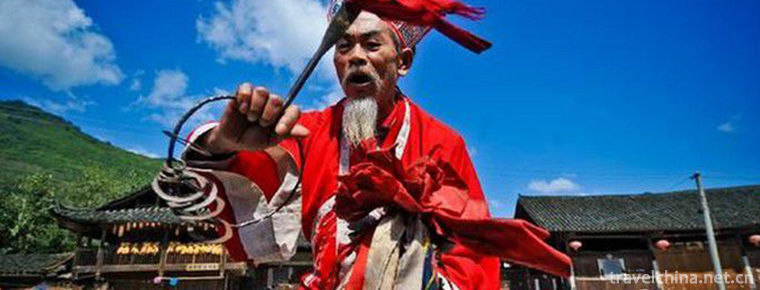
-
Diaoyutai State Guest House
Diaoyutai State Guest House is an ancient imperial garden and modern State Guest House complex located on the east side of Yuyuantan (39 55'N 116 19'E) in Haidian District, Beijing, China.
Views: 203 Time 2018-12-13 -
Chengdu Maoye JW Marriott Hotel
Chengdu Maoye JW Marriott Hotel is located in Tianfu Square, the heartland of Chengdu. It is about 30 minutes'drive from Chengdu Shuangliu International Airport to the hotel, opening the extraordinary.
Views: 226 Time 2018-12-16 -
Shanghai Gulf National Forest Park
Shanghai Bay National Forest Park is located in the May 4th Farm of Haiwan Town, Fengxian District, Shanghai, 60 kilometers from the center of Shanghai. It is a large artificial urban ecological fores.
Views: 144 Time 2018-12-19 -
Liu Sanjie s Grand View Garden
Liu Sanjie Grand View Garden, formerly known as Guilin Liu Sanjie Landscape Garden, is located on the Peach Blossom River in Guilin City, Guangxi Zhuang Autonomous Region. It covers an area of more th.
Views: 144 Time 2018-12-26 -
White Horse Temple Baima Temple
Baima Temple is located in Baima Temple Town, Luolong District, 12 kilometers east of the old city of Luoyang City, Henan Province. Founded in the eleventh year of Yongping in the Eastern Han Dynasty .
Views: 179 Time 2019-01-02 -
Drifting in Baotianbang Canyon
Baotianbang Canyon Drifting Scenic Area is located in Neixiang County, Nanyang City, Henan Province, which is an excellent tourist city in China. Baotianman is the only World Biosphere Reserve in Hena.
Views: 150 Time 2019-01-02 -
Production Techniques of Dezhou Braised Chicken
Dezhou Grilled Chicken is a kind of poultry meat product cooked slowly in small fire. It is originally produced in Dezhou City, Shandong Province. It is also known as Dezhou Wuxiang Boneless Grilled C.
Views: 272 Time 2019-04-26 -
Folk Stories of Ancient Fishing Goose
Ancient fishing geese folklore is a local folklore story based on fishery culture, which originated and spread in the Erjiegou area of Liaohe Estuary, Dawa County, Panjin City, Liaoning Province. .
Views: 237 Time 2019-05-01 -
Tujia Year
Tujia Year is an important and ancient festival of Tujia people in Xiangxi Tujia and Miao Autonomous Prefecture of Hunan Province. During the thousands of years of historical development, some relativ.
Views: 163 Time 2019-06-23 -
Xuzhou Qinshu
Xuzhou Qinshu is a kind of opera recognized by Xuzhou local people in Jiangsu Province. Spread in Xuzhou. At first, it was a recreational activity of "playful friends" in the leisure time of.
Views: 308 Time 2019-07-09 -
Ban Gu
Ban Gu (32 - 92 years), Meng Jian, Fufeng An Ling (now Shaanxi Xianyang Northeast China, famous in Eastern Han Dynasty historian , Litterateur 。 Ban Gu's birth Confucianism Family, father Ban Bi Uncle.
Views: 259 Time 2019-09-06 -
Can Ding Zhens Pony pearl really run first
Recently, after the exposure of Ding Zhen's Pony pearl, many netizens have a question in their hearts: "can it really run first?"? After the news release, netizens have been hotly debated. The specific contents are as follows:.
Views: 131 Time 2020-12-07
